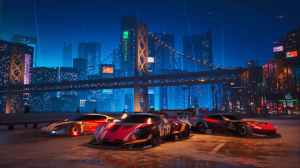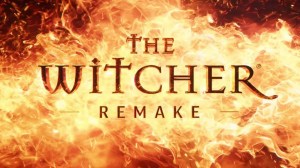With today’s announcement that The Joker will get his own stand-alone origin movie came the added revelation that Warner Bros. will launch a whole new category of DC films — stand-alone movies (henceforth called “Elseworlds” for economy of language) that will reportedly exist outside of the confines of the DC Extended Universe‘s continuity.
Videos by ComicBook.com
The immediate response from some fans and even the press was to assume the Elseworlds movies, a return to the format that brought us Superman: The Movie and The Dark Knight (among many others) would provide an escape plan for Warner Bros. if the DCEU were to become more trouble than it is worth.
That is not an entirely implausible interpretation of what the Elseworlds movies could do…but with at least another five years of DCEU movies planned, it is much more likely that the Elseworlds movies have another purpose entirely in mind.
Even if we completely ignore the polarizing nature of the DC Extended Universe and the very vocal critics who would love to see it fail, there are still numerous plausible explanations for the Elseworlds movies to exist — and they are all more interesting than “giving up on the current model.”
Elseworlds
We didn’t choose the name “Elseworlds” at random, of course: in comics, Elseworlds was a DC imprint that launched in 1989 with the Batman story Gotham By Gaslight, which is currently being adapted as an animated feature film.
For years, DC’s “imaginary stories” just took place in the regular monthly books, with a note that the tale didn’t quite “count.” With the creation of the Elseworlds imprint, stories like Superman: Red Son and Kingdom Come had a designated place to go.
One of the things that separates DC from Marvel in the comics is that while Marvel arguably perfected the shared universe, they have had relatively little success telling stories outside of that universe. A number of DC’s most popular stories of all time — including Watchmen, The Dark Knight Returns, DC: The New Frontier, and the aforementioned Kingdom Come — fall into the category of non-canonical “imaginary stories” or Elseworlds tales.
Zack Snyder, who directed Man of Steel and Batman v Superman: Dawn of Justice, first directed Watchmen as a feature film in 2009, so Warner Bros. is demonstrably not averse to making DC movies that colored outside of the lines.
In the relatively recent past, Warner Bros. was rumored to be considering Batman Beyond and Superman: Red Son movies, both of which take place in alternate versions of the DC Universe. Batman Beyond, in particular, feels like it has huge upside becuase there is a fair amount of public awareness of the property (since it originated on a fairly popular television show).
Superman: Red Son isn’t as popular with mainstream fans, but there is definitely a certain Russian zeitgeist in the culture right now, and as a high concept, it is pretty simple to grasp.

Vertigo
DC has a few of their Vertigo titles represented on the small screen, but very little Vertigo material has made its way to theaters yet — and when it has, the connection to comic books has been downplayed.
Creating stand-alone movies with the DC fanfare at the beginning could help make rumored movies like Sandman a bit more marketable, especially as long as DC continues to be remarkably consistent at the box office.
(Yes, consistent. Each of the movies has made in the neighborhood of $300 million to $400 million domestic. Those might not be enormous numbers considering the film’s budgets in some cases but it is the kind of consistent performance that a studio can bank on and plan around.)
While Vertigo properties are technically creator-owned, DC has the ability to exploit the IP as long as they hold the publishing rights (and sometimes beyond). Think of something like iZombie, which has turned into a hit for The CW in spite of being greenlit after series writer Chris Roberson had an acrimonious split with DC.
A number of Vertigo’s most popular properties, from DMZ to Y the Last Man to The Invisibles and Transmetropolitan, have been rumored for a film or TV adaptation at one time or another, only to have the project stall out along the way.
It’s distinctly possible that attaching the lucrative DC brand to things like this could elevate something that feels like “another mid-budget dystopian story” to something Warner would be eager to greenlight.

“A Star Wars Story”
While Elseworlds and Vertigo would provide the movies with whole new genres and universes to play with, there is a more simple approach that The Joker hints at: simply taking characters from the DC superhero mainstream and making separate movies that aren’t bogged down by ties to the larger DCEU.
We could call this the “Star Wars Story” approach, since it is basically what Lucasfilm has been doing when it makes movies like Rogue One or Han Solo. Those are slightly different, in that they take place in the same timeline/continuity as the main Star Wars movies, but the events of the Star Wars Story movies do not directly impact the ongoing Episodes and only tie into events that have already been documented in the prequels and original trilogy. So while there are clear differences between an Elseworlds movie and a Star Wars Story movie, the parallel is close enough for jazz.
Certain films, like Booster Gold, are already in development, while a number of stand-alone DC movies like Metal Men and Legion of Super-Heroes have been rumored but never seemed to get off the ground in recent years.
DC seems to see the value of this approach in recent months: while not expliticly taking place outside of the DC Universe, stories like The Fall and Rise of Captain Atom and the upcoming Black Lightning: Cold Dead Hands are clearly more concerned with telling a self-contained story than they are fitting into the larger DCU.
DC has also had some stories not explicitly marked as Elseworlds, and ostensibly canonical, but weird enough and stranded far enough away from the mainstream that an adaptation attempt would likely only suffer from trying to tie it to the Justice League. Think Shadowpact, Haunted Tank, Sgt. Rock, and on and on.
There is no reason to believe that movies playing fast and loose with the DC timeline would inherently spell the end of the DC Extended Universe any more than these comics (or the Star Wars Story movies) do so for the DC and Star Wars universes. What is assured, is that the decision to set some films outside of the constraints of continuity opens up a world of new possibilities for storytellers.








